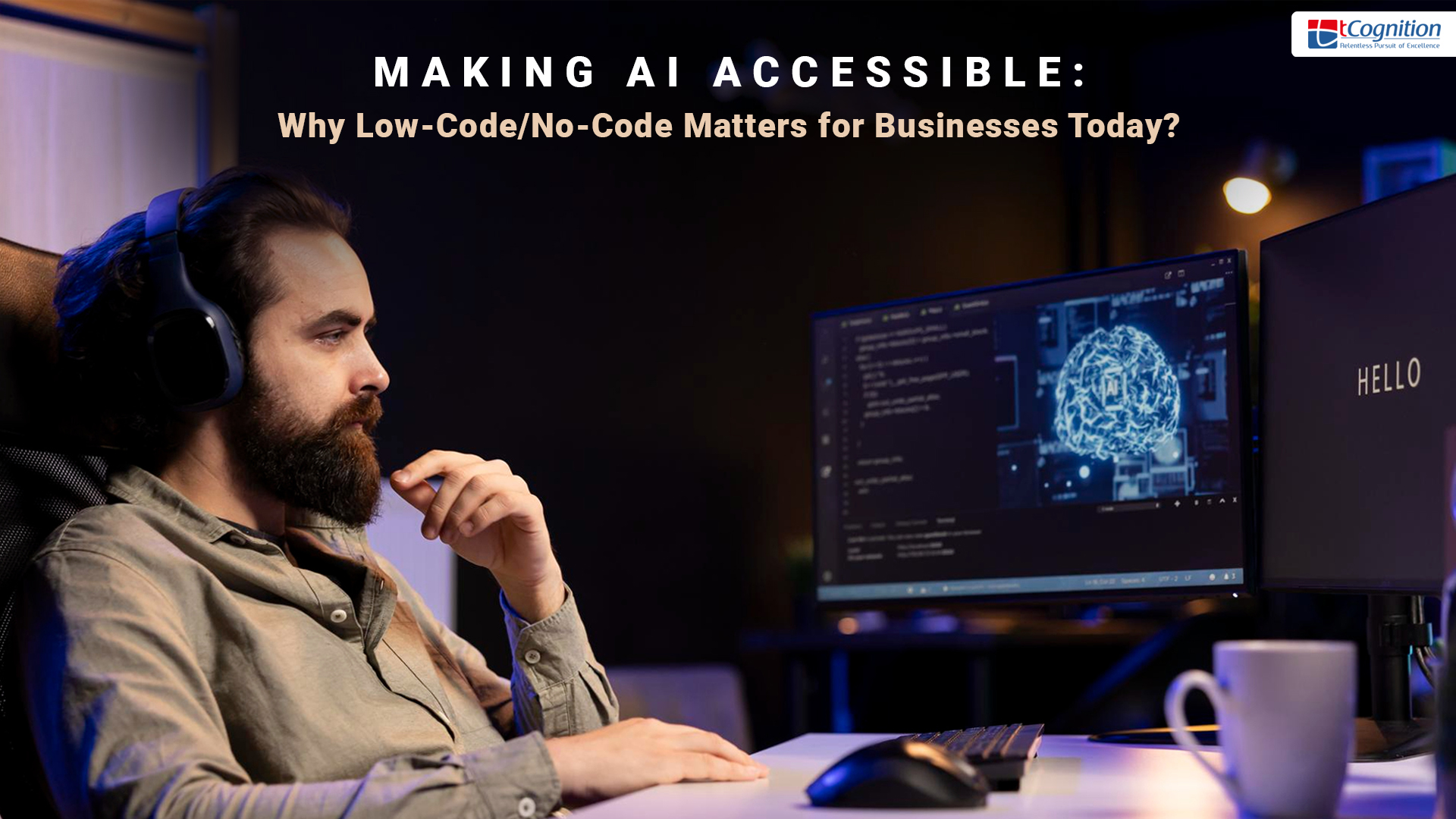Introduction
Artificial Intelligence was once a luxury—reserved for enterprises with deep budgets, vast data, and specialized teams of engineers. In 2025, that has changed dramatically. With the rise of low-code and no-code platforms, AI has entered the mainstream, and businesses of all sizes—startups, SMBs, and even non-technical departments within large organizations—are now building intelligent solutions with surprising ease.
At tCognition, we believe this movement is more than just a technology shift. It represents a new era of inclusive innovation, where creativity and problem-solving are no longer limited by coding expertise.
What Does “Democratized AI” Mean?
Democratized AI is about putting the power of artificial intelligence into the hands of everyone, not just developers or data scientists. Instead of requiring years of programming knowledge, today’s platforms offer intuitive interfaces where business users can drag and drop AI components, connect data sources, and deploy solutions in record time.
For example, a marketing manager with no coding background can now build a recommendation engine, while a small retailer can design a multilingual chatbot to serve customers globally. This accessibility is reshaping how organizations think about innovation.
The Rise of Low-Code / No-Code in 2025
In just a few short years, low-code and no-code platforms have evolved from experimental tools to essential enterprise enablers. What makes them so powerful today is their ability to seamlessly integrate with generative AI models, scale effortlessly through the cloud, and dramatically shorten the path from idea to deployment.
Applications that once required months of development can now be built in weeks, or even days. An SMB in healthcare, for instance, might create an AI-powered appointment scheduling system that integrates with patient records—without investing in a full development team. This acceleration is leveling the playing field, allowing smaller businesses to compete with giants in ways that were previously unimaginable.
Benefits for Businesses
The impact of this shift is profound. By lowering technical barriers, businesses can innovate faster and more affordably. Employees who understand customer needs firsthand—such as sales teams, operations managers, or HR professionals—can design solutions themselves, instead of waiting for IT backlogs to clear.
At the same time, costs are reduced, since organizations don’t need to maintain large development teams for every AI initiative. The flexibility and scalability of cloud-based AI tools also mean solutions can grow alongside the business. In essence, low-code and no-code platforms are unlocking speed, affordability, and accessibility—a powerful trio for competitive advantage.
Challenges Along the Way
Yet, democratization is not without risks. When employees build AI applications outside of formal oversight, organizations face the danger of “shadow IT,” where tools run without proper governance or security checks. Data privacy is another concern: feeding sensitive information into AI systems without safeguards can expose companies to regulatory and reputational risks.
There are also limitations to how far low-code solutions can go. For highly complex or large-scale projects, businesses often need custom development and deep integration expertise to ensure reliability. This is where balance becomes essential—using low-code/no-code for rapid innovation while relying on experts to scale and secure these solutions.
How tCognition Supports This Shift
tCognition’s role in this landscape is to bridge the gap between accessibility and enterprise-grade reliability. We help organizations embrace democratized AI confidently by offering strategic advisory services, robust integration support, and governance frameworks that align with security and compliance standards.
When a business needs to extend beyond the limits of a low-code prototype, our team develops customized solutions that scale without compromising performance or security. In this way, companies benefit from the speed of democratized AI and the stability of enterprise expertise.
Conclusion
2025 marks a turning point. Low-code and no-code platforms are no longer side tools—they are central to how businesses innovate with AI. This democratization empowers non-technical teams to solve problems creatively, while technical experts focus on building scalable, resilient systems.
At tCognition, we see this as an opportunity for businesses of every size to step into the AI era without fear of complexity or cost. By combining the accessibility of democratized AI with our deep technical expertise, we help organizations innovate faster, smarter, and more responsibly.

